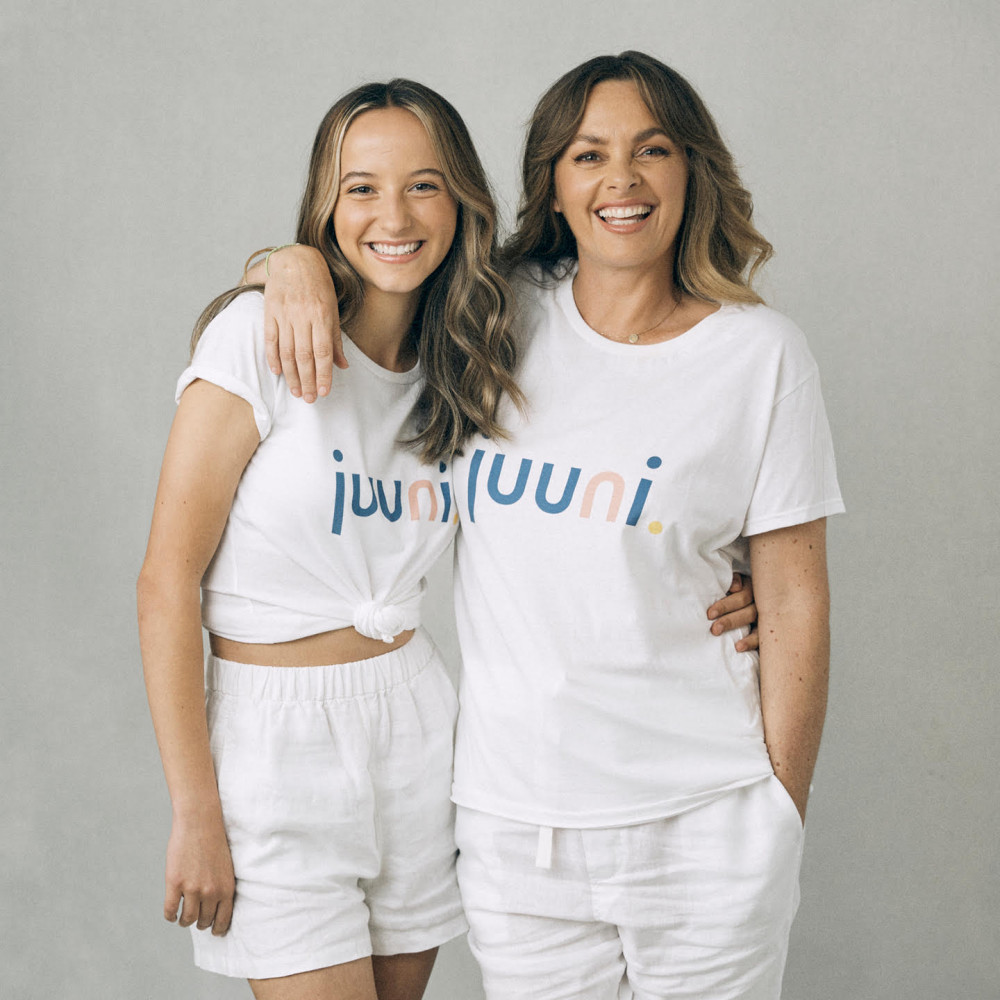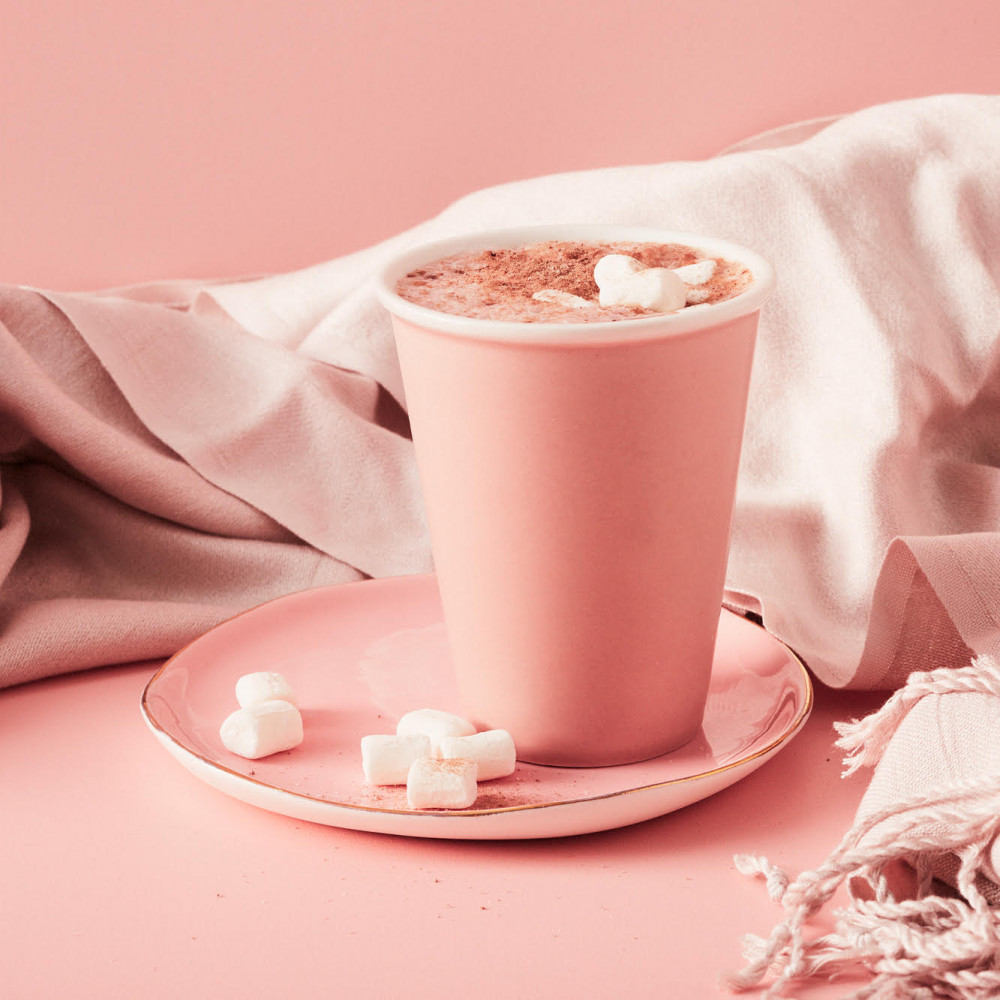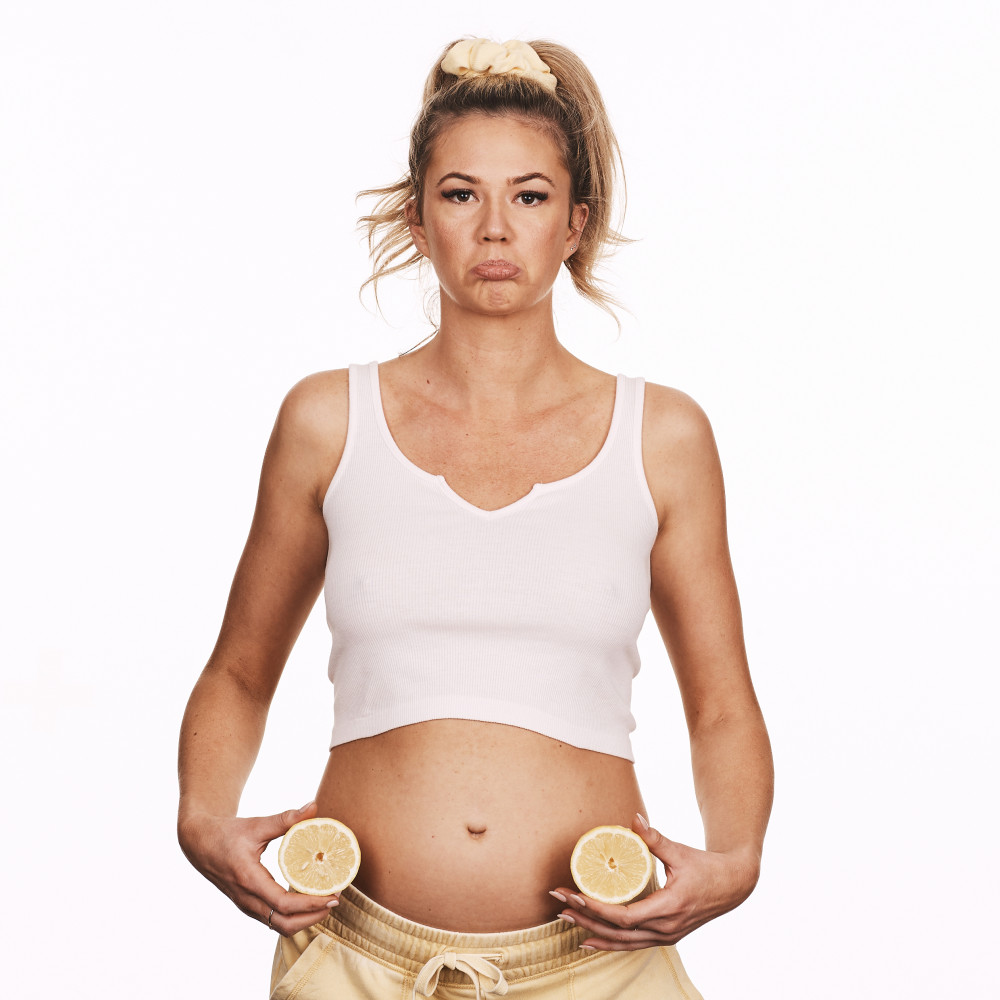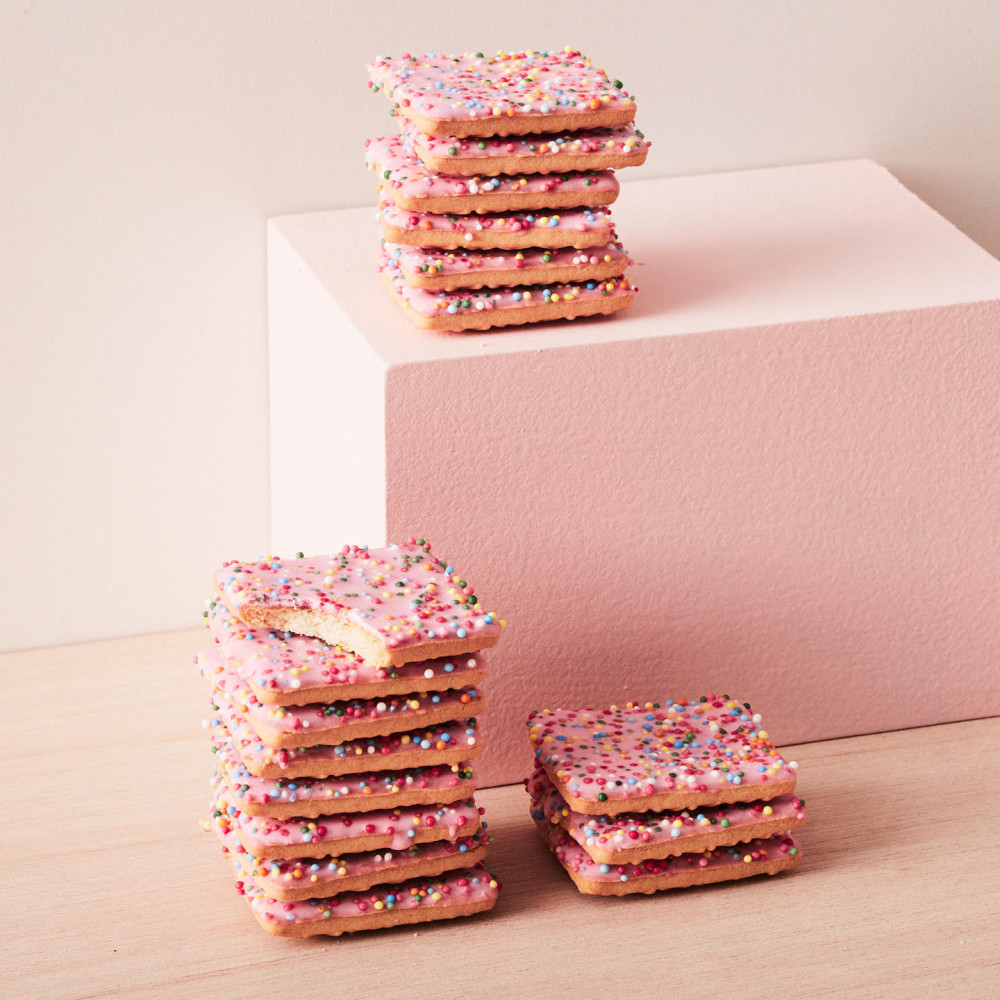Juuni is introducing young women to a new way to “period”, and former Dolly cover girl and 90s “it” girl Alison Daddo is along for the ride as ambassador. Alison and Juuni, an organic tampon and pad subscription-based service that delivers curated period products monthly, want to shine a new light on periods and the whole conversation (or lack of) surrounding this totally normal yet stigmatised phase of womanhood.
“I think we need to make periods something girls aren’t afraid to discuss and make it part of everyday conversation. Make them realise that it happens to people the world over,” says Alison, while on a photoshoot for Juuni with her 14-year-old daughter Bodhi.
Now in her 50s, Alison isn’t just flying the flag for period talk, she’s tackling womanhood in all its splendour and phases. As well as standing as a glowing example of the wisdom and beauty that comes with age, she’s also releasing her new book Menopause: The Mystery and Magic as an antidote to the negative spin around the subject.
When asked by ex-Dolly and Cosmopolitan editor Bronwyn McCahon if being a supermodel in her youth has impacted her approach to aging, Alison says, “I just don't think of myself as a supermodel! Ever. Being a woman has impacted me as I age, and to some extent being someone who was remembered as a pretty teen, I feel a bit more pressure. Though I really want women to own their beauty as they age, we are taught that women become invisible as they get older, that beauty is for the young. I disagree.”
In fact, Alison’s 40s were a turning point for her. “My 40s is where my lifelong dream of becoming a pre-school teacher came true. It's where I began to feel that I was strong enough and wise enough to step into things that were just for me. I had always put my family first and ahead of me, my 40s became more about my desires being just as important.”
Regarding Alison’s kids’ reactions to her past as an icon for a generation of young women, she is naturally self-deprecating.
“It's all very strange for my children since moving back to Australia – they grew up with me as a mother working as a birth assistant and a pre-school teacher – I rarely talked about modelling. They were just proud of me as someone who helped create their school Halloween Fair and made them handmade toys for their birthdays!” she says.
Alison admits that while she has tried to keep her kids out of the spotlight, she’s excited to have Bodhi in tow for the Juuni photoshoot. “I suppose I have tried to keep them away from lots of it, but now that Bodhi is 14 I am excited that she wants to join me on set today. I feel so lucky to be here with her. I was excited about doing this with my youngest and having the day together on set,” she says.
A new way to “period”
“The dialogue around periods has changed so much (since I was a Dolly cover girl) and I love the fact that Juuni is trying to normalise it. Back in the Dolly days it was only talked about by Dolly Doctor, but now we have a more open dialogue with our girls from a young age,” Alison says.
Juuni and Alison are using their platforms to help educate the next generation so that instead of dreading their period, they see it as a totally natural function that should be embraced.
“We need to educate them in the early years. It’s a generational shift,” Alison says.
Part of this education is ditching the taboo around periods and arming young women with the information they need to feel empowered about their bodies. Juuni is helping pioneer this period movement by being that fount of knowledge for young women, standing alongside “period preacher” Lucy Peach, TV presenter Yumi Stynes and ex-“Dolly Doctor” Dr Melissa Kang with their book, Welcome to Your Period, and naturopathic doctor Lara Briden’s Period Repair Manual.
This period movement is gaining momentum worldwide: just across the ditch, New Zealand has made period products free for high school students in a bid to curb period poverty, which can cause girls to skip school due to a lack of access to products. Scotland’s recent move to make period products free of charge is another forward step towards a broader conversation around menstruation and the issue of period poverty and accessibility.
To address period poverty in Australia, Juuni has an ongoing collaboration with The Happy Boxes Project. By donating just 50 cents a day, you can donate a Juuni Happy Box to remote indigenous communities throughout the Northern Territory and Western Australia.
A Juuni Happy Box (and Juuni box) contains a hand-picked selection of organic pads, liners and/or tampons, bonus gifts and a sweet treat, while the fun, colourful packaging and cheerful mantras are a solid antidote to the usual, socially accepted doom and gloom vibe around periods.
“To me, Juuni is a celebration – it injects fun into having your period,” says Alison.
“I love opening the box, I never know what’s going to be inside,” says Bodhi. “Personally, I feel very taken care of. I don’t know any other brands that do this.”
The non-toxic nature of Juuni’s period products is an added boon for Alison and Bodhi.
“Mum loves these products. We love organic and a brand like Juuni that looks so fun and we know it’s all-natural with nothing bad in it. Everything in the box is just perfect!” she says.





